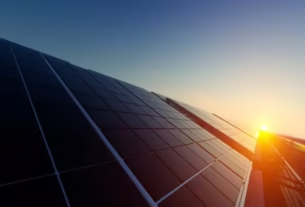In Short : Key government electric vehicle (EV) incentives, such as the $7,500 tax credit, Zero Emission Vehicle (ZEV) credits, and Corporate Average Fuel Economy (CAFE) fines, which previously increased demand for EVs, have been repealed in a comprehensive U.S. budget just signed by President Trump. Meanwhile, international rivals, particularly China, are stepping up their efforts to promote EVs through scale, advantageous legislation, and subsidies. Ford seems to be pursuing a different approach, focusing on domestic EV research and introducing a $30,000 electric truck and an affordable EV platform, with a 2027 deadline.
Forecasts and Market Trends
U.S. EV purchases are predicted to momentarily increase as buyers scramble to qualify after EV subsidies expire, but then fall precipitously in 2026 as a result of growing costs and dwindling incentives.
Ford is not discouraged. It is spending money on a new EV design strategy that uses localized lithium-iron-phosphate batteries and less expensive assembly.
With government backing, Chinese EV manufacturers, on the other hand, are continuing to increase output, enhancing their pricing advantage and worldwide clout.
Effects on Policy and Clean Energy
The elimination of federal EV incentives may hamper the U.S.’s shift to electric vehicles and impede the growth of domestic clean energy production.
The industry is susceptible to political changes since support for EVs currently mostly depends on legislative decisions rather than market realities.
China’s policy-driven EV ramp-up, meanwhile, strengthens its supply chains, boosts exports, and puts more pressure on American automakers to compete.
The Significance of It
Strategic Disconnect: The U.S. EV market may miss out on cost savings, tech leadership, and scale that are already being achieved elsewhere.
Long-Term Risk: In the absence of support structures, American automakers may lag behind in terms of EV manufacturing capacity, affordability, and innovation.
Global Competitiveness: The opposing strategies—China’s subsidy-supported acceleration and the United States’ policy-driven slowdown—run the risk of securing Chinese supremacy in the global EV transition.
The bottom line
The EV market in the United States is reaching a turning point. Automakers like Ford are trying to stay afloat by implementing daring innovations as federal incentives are being reduced. However, in the absence of strategic policy support, the United States runs the risk of losing its lead in the global EV race to competitors like China who have greater financial resources and policy support.




